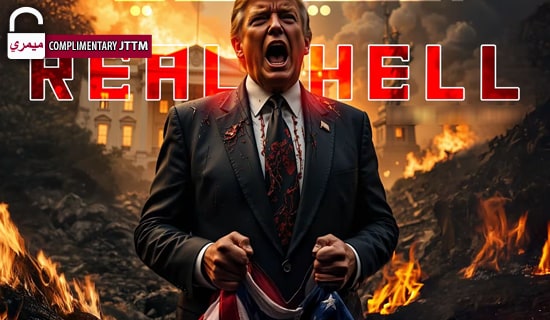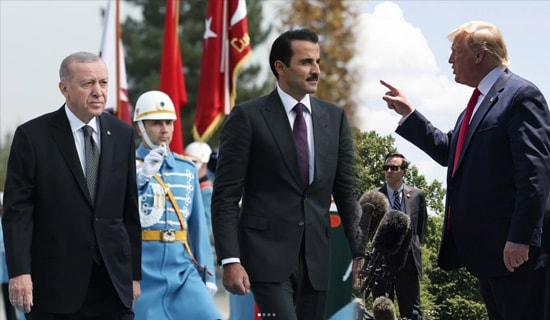On August 17, 2022, Etemadonline.com posted an interview with Iranian economist Saeed Laylaz, who has served as an advisor to former Iranian President Mohammad Khatami. Laylaz said that Iran must not renew its commitment to the JCPOA since Iran is much safer with the ability to build a nuclear bomb, and he described this ability as a "geo-political shield." He speculated that while the U.S. may be hesitant to attack Iran because it is juggling its relationships with the Arab countries, Israel would hesitate much less if it felt the need to attack, and would not feel obligated by the JCPOA even if a new agreement were reached. He also said that he believes Iran has already crossed the "nuclear breakthrough threshold." Laylaz emphasized that Iran's enriched uranium is an important deterrent, and said that stability only comes from the "muzzle of a cannon."
To view the video of Saeed Laylaz click here or below:
"We Must Not Accept The JCPOA; The Agreement That Was Signed At The Time Was Very Good, But Its Time Is Over"
Saeed Laylaz: "Let's assume we sign the JCPOA [again]. No Western technology will enter [Iran]. No Western investments either. What investments? It will be ridiculous for a country with $18-20 billion capital flight every year to give up its prestige in order to bring in $1-2 billion worth of capital per year. You should first plug the holes in your own leaking bucket, and only then turn to attracting foreign capital.
[...]
"Look, the [state] apparatus has become so corrupt that it cannot survive without creating a cash flow of 5,000 billion toman. Not all of it stems from the budget deficit. Only one third does. The rest stems from theft. Real theft! It is just like a drug addict who is willing to sell all the property of his father and mother — even the carpet, even his children — and waste it all on his addiction. The Islamic Republic's system now has to do this by printing money.
[...]
"If you give away all your enriched uranium, two years from now, either the United States... Here, I would like to answer your question..."
Interviewer: "Okay."
Laylaz: "The U.S. will either leave the JCPOA or it will not, but let me tell you: Under no circumstances will Israel see itself committed to it.
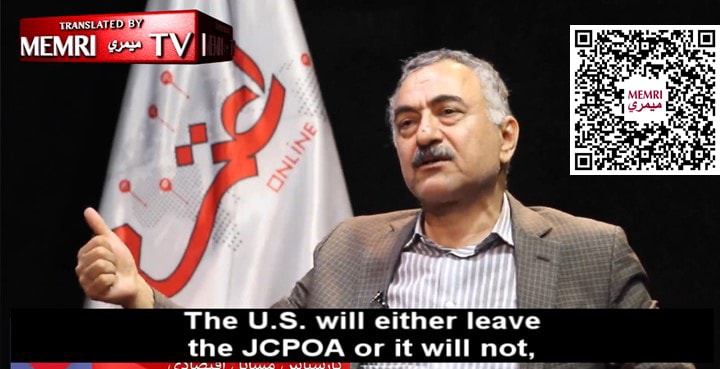
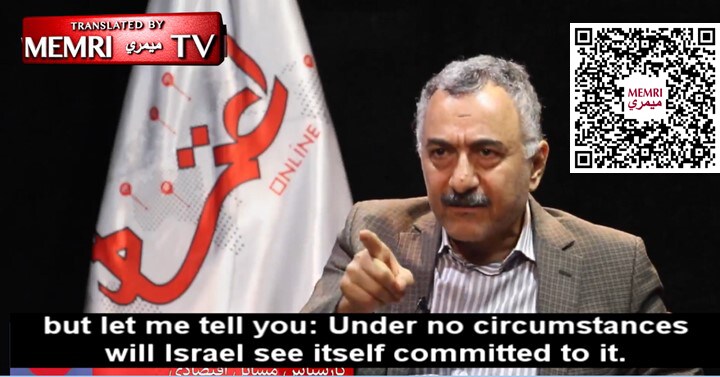
"If they ever feel — whether for domestic, regional, or international reasons — that they have no choice, or that they need this, or that it benefits them to attack Iran — the danger of such an attack without the enriched uranium we now have in Iran will be orders of magnitude bigger than it would be with the enriched uranium."

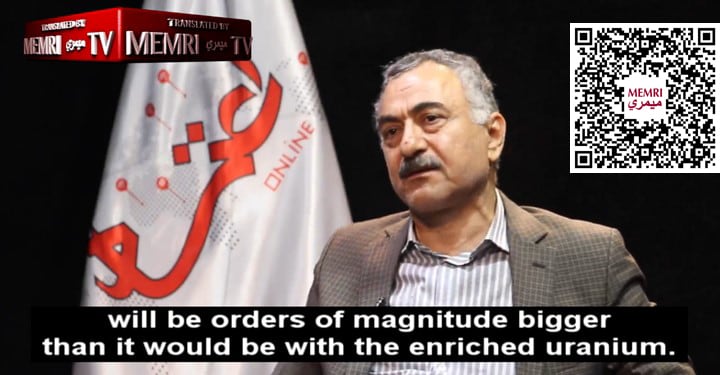
Interviewer: "So you think that we should accept the JCPOA when..."
Laylaz: "We must not accept the JCPOA. The agreement that was signed at the time was very good, but its time is over."

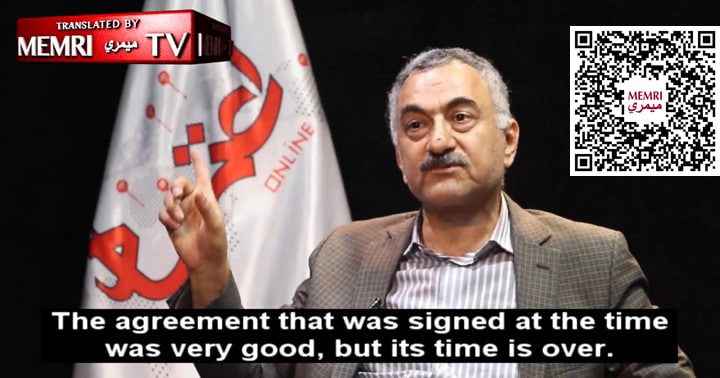
Interviewer: "So you are willing to accept another, new agreement."
Laylaz: "We need to negotiate a new balance of power.

[...]
"I believe that the only thing that can guarantee your stability is the muzzle of a cannon."
Interviewer: "But only if you can afford to buy a cannon..."
Laylaz: "We already did. I know what I am telling you. It's over."
[...]
"I Assume That [Iran Has] Passed The Nuclear Breakthrough Threshold"
Interviewer: "Under these circumstances, would you rather live in tension or in tranquility?"
Laylaz: "In tranquility, or course, but I contend that this tranquility comes out from the muzzle of a cannon, not from an agreement. A piece of paper will give you nothing, brother.
[...]
"The reservations the U.S. now has about attacking Iran are 1,000 times greater than Israel's reservations.


"The U.S. thinks about its allies in the UAE, Kuwait, Saudi Arabia, and Iraq, about its forces, about preventing the Persian Gulf from going up in flames... All this does not concern Israel."
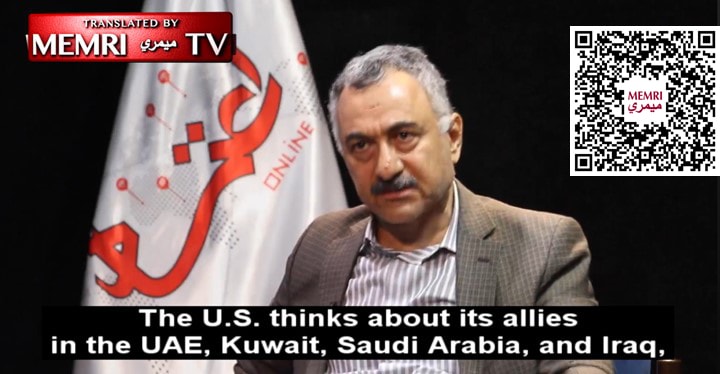
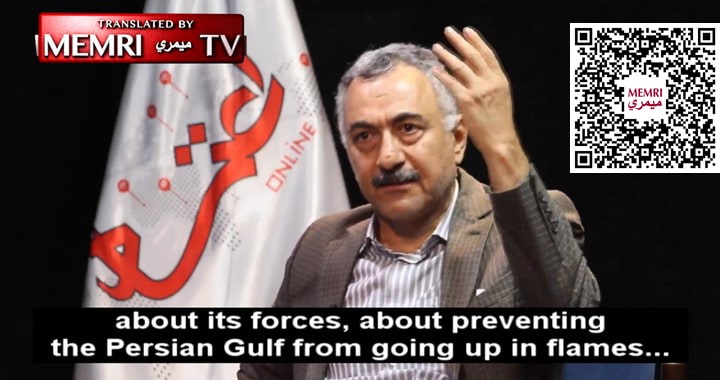
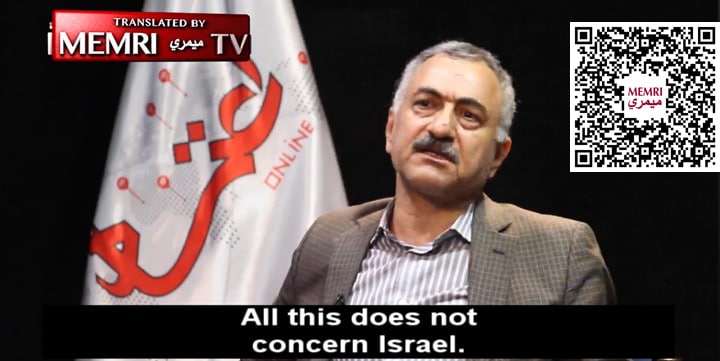
[...]
Interviewer: "You said that the enriched uranium should be kept in Iran. Why do you think it's important? What need does Iran have..."
Laylaz: "For deterrence. This is why uranium is important in other countries. Deterrence.
[...]
"In 1994 and 1995, the number one buyer of Iran's oil was America. Did you know that? When this happened, the U.S. ratified the D'Amato Bill. We sold them oil very willingly, under the leadership of the same esteemed Leader [Khamenei] we have now, and in the very same Islamic Republic with the very same rule.
[...]
"So far, the nuclear bomb... The ability to build a nuclear bomb... After all, I do not have technical information, and even if I had, I would not talk about it here. I assume that we have passed the nuclear breakthrough threshold. The result is that they will no longer be able to attack Iran. This is what happened in North Korea as well.
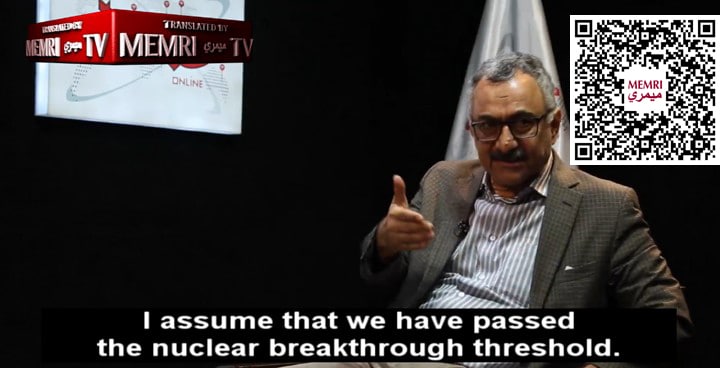
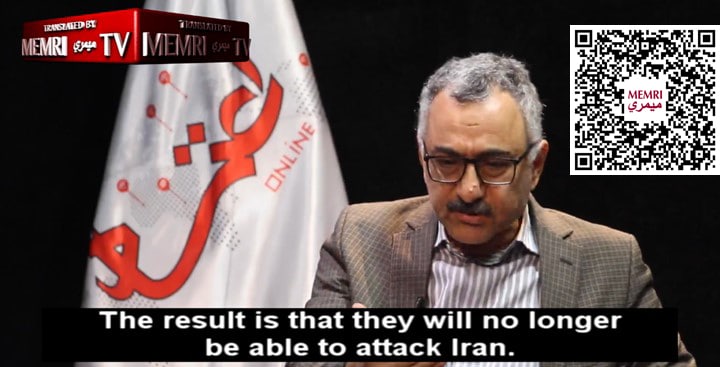

[...]
"Why were we included in the Axis of Evil? After all, we helped them topple Saddam. Answer me. We need to use our brains here. Wait. Then they said that they wanted to topple the Taliban regime in Afghanistan. We helped them once again.
[...]
"American armed forces were deployed on almost three-quarters of Iran's borders, and every day, they would say that they wanted to bring us down. What should have been Mr. Khamenei's response in your view?
[...]
"[Khamenei] saw that they would not leave us alone, so we pursued enrichment. We said to ourselves: We need a geo-political shield.
[...]
"The Unipolar World [Began] When The U.S. Invaded Iraq And [Ended When] Russia Invaded Ukraine; That Was The Most Dangerous Period Imaginable For Iran"
"The unipolar world lasted for 25-30 years, from 1991, when the U.S. invaded Iraq, and until Russia invaded Ukraine. That was the most dangerous period imaginable for Iran. The [Iranian regime] had to protect itself. I swear by God, you would do the same. That is why when Mr. Khatami became president, the nuclear issue had not suffered even the most minimal setback. When Mr. Rouhani rose to power, he also continued it. This is a national project, brother.
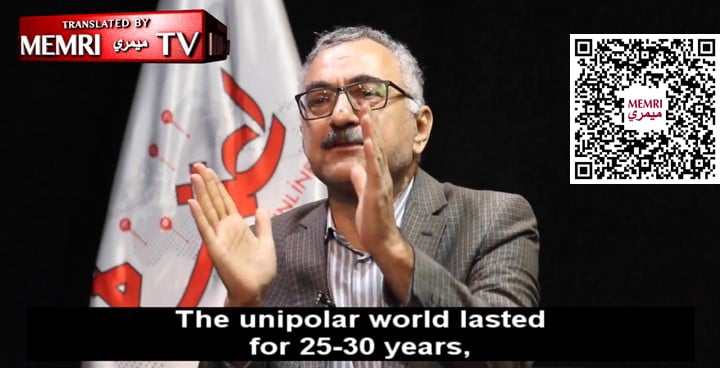
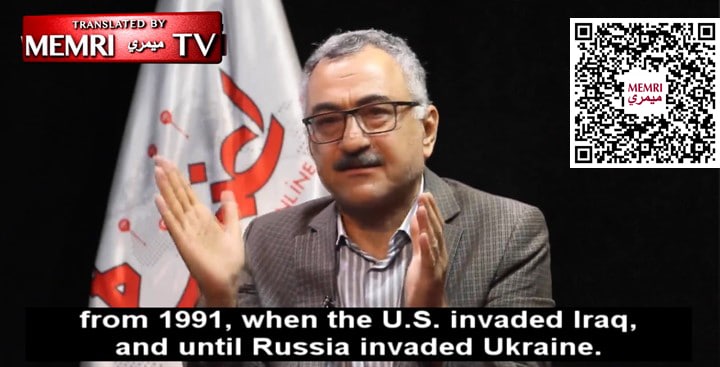

[...]
"According to the JCPOA, you can very nicely enrich uranium to 3.5%, and this includes nuclear medicine, and so on. But I am talking about something much bigger, which I do not dare call by its name. I called it a 'geo-political shield'. It was the U.S. that forced us to turn in this direction, brother."
[...]
Interviewer: "You talked about a geo-political shield. Perhaps I misunderstood you, but you probably mean a nuclear bomb."
Laylaz: "Or the ability to build it."
[...]
Interviewer: "Do you think Iran is safer with or without a nuclear bomb?"
Laylaz: "Under the current circumstances, Iran is safer with the ability to build a nuclear bomb."




